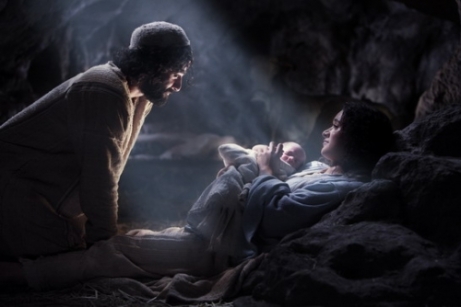Original Post and Authorship: Bob Kauflin
It’s difficult, if not impossible, to overstate the significance of the Incarnation.
Writers, philosophers, poets, and composers through the centuries have searched in vain for words that adequately capture the wonder, mystery, beauty, and power of Jesus as Emmanuel, God with us.
The miracle and meaning of the Incarnation can be so difficult to grasp that we can give up and start to view Christmas in ways that leave us impoverished and unimpressed with the real story.
Sometimes we sentimentalize Christmas.
Sentimentalism is focusing on the sights, sounds, and smells of Christmas that give us good feelings. Dazzling decorations, fresh baked sugar cookies, poinsettias, family get-togethers, gift shopping, twinkling lights, Christmas carols, cards from friends, tree-cutting expeditions, wrapping presents. Of course, all these Christmas traditions are an expression of common grace, for which we can joyfully thank God.
Sometimes we sanitize Christmas.
There’s no umbilical cord to cut and no blood. It’s a “silent night.” The surroundings are strangely free from the pungent odor of manure. Joseph and Mary are calm, cool, and collected. Everyone gets a good night’s sleep. There’s no controversy or gossip surrounding the birth. It’s a pleasant, appealing way to think about Christmas, but obscures the foulness, uncertainty, and sin that Jesus was born into.
Sometimes we spiritualize Christmas.
Spiritualizing Christmas is ignoring Christmas as earth-shattering history and using it simply to promote general virtues like brotherhood, peace, joy, generosity, and love. And tolerance, of course.
More importantly, the glory of God becoming man was never meant to be marginalized to a few weeks. It means something cataclysmic every day.
- Jesus, the eternal Son of God who before time was worshiped by countless angels, set aside his glory and entered the world through the birth canal of a young woman he had created.
- He came not into a 21st century environment with trained doctors, sterilized instruments and fetal monitors, but into a 1st century cave filled with flies, animal excrement, and filth.
- The fullness of deity took of residence in the body of a baby gasping for its first breath.
- The one who spoke the universe into existence lay silent, unable to utter a word.
- He came by choice and with the sole intention of redeeming a fallen and rebellious race through his perfect obedience, substitutive death, and victorious resurrection.

That was fantastic!!!!
You’re a fast reader! I’m still working on it. I want to make an experiment of sorts and post just bits and pieces of the original article. Sometimes, when the post is too long, people (like myself) don’t read it at all.
You’re right about the long posts… Some of us can’t take time to read the whole thig, but this one is just right… It’s excellent and mirrors a lot of what I was telling someone just the other day, but better said. 😀
🙂